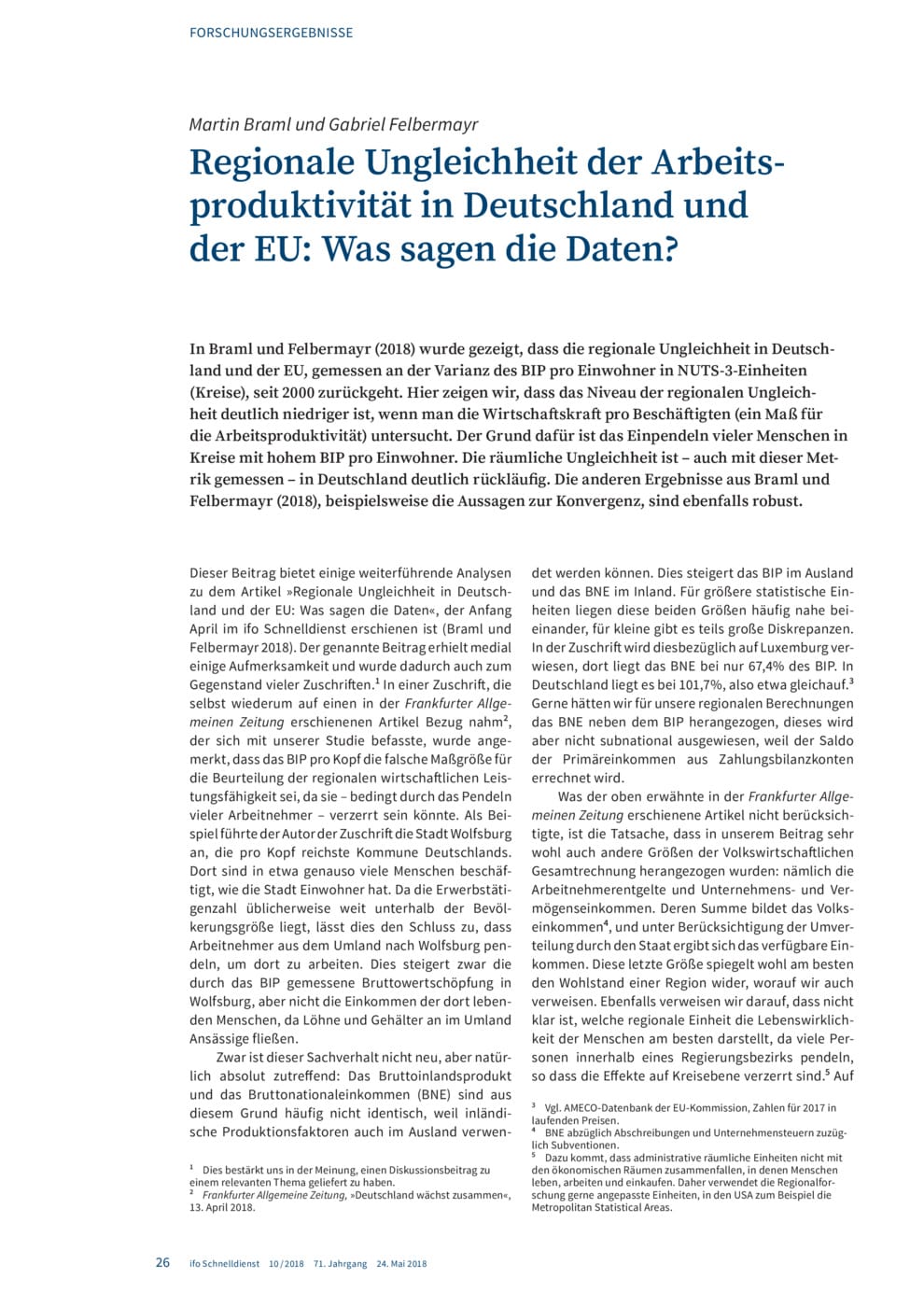Regional Inequality and Labour Productivity in Germany and the EU: What do the Data Tell us?
ifo Institut, München, 2018
ifo Schnelldienst, 2018, 71, Nr. 10, 26-31

In ifo Schnelldienst 7/2018 the authors demonstrated that regional inequality in Germany and the EU, measured by the variance of GDP per inhabitant at the district level, has been decreasing since 2000. This article shows that the level of regional inequality is significantly lower when examining economic output per employee – a measure of labour productivity. The reason for this is that many people commute to districts with high GDP per inhabitant. The mobility of labour reduces regional inequality in two ways: First, by moves in and out of the district, mobility leads to a change in scarcity and equalises per capita income. Secondly, commuting from district to district means that regional production and consumption need not be congruent. Many districts benefit from production hubs in their immediate vicinity that workers can commute to without having to reside there. Spatial inequality, measured by this metric, is clearly declining in Germany.